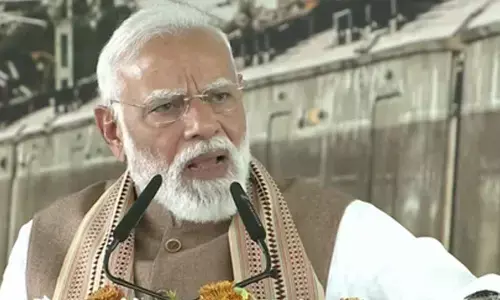Clear and present danger

People scared of rapid spread of Covid third wave
In the context of the Covid-19 pandemic, there is no ‘zero risk’ when it comes to any kind of gathering – especially events that bring groups of people together.
In the context of the Covid-19 pandemic, there is no 'zero risk' when it comes to any kind of gathering – especially events that bring groups of people together. Regardless of the size of the event, you are at risk from Covid-19 whenever you get together with people. The virus that causes Covid-19 spreads easily indoors, especially in poorly ventilated settings. If you don't feel well or show any symptoms of Covid-19, stay home.
If you choose to attend a gathering, practise prevention measures, regardless of your Covid-19 vaccination status: keep at least a 1 metre distance from others; wear a mask; avoid crowded or poorly ventilated areas; cover coughs and sneezes with bent elbow or tissues; and clean your hands frequently.
These measures are a good idea to protect yourself and others, even when the event or venue doesn't require you to practise them. This is what the World Health Organization says. Yet, clear and present danger, we keep ignoring the warnings and allow huge gatherings under one pretext or the other. The decision of the AP Government to allow at least 10,000 devotees per day for darshan during the Dussehra celebrations at Indrakeeladri is one such.
AP is once again witnessing a spurt in Covid-19 cases. There are some districts which have gone in for part-time curfews. East Godavari district administration has preferred night curfew of late to curb the spread of the virus. There is also the fear of co-infections increasing. Still, the AP government has decided to allow darshans in such huge gatherings.
There is little to suggest that the gathering will be limited to the proposed numbers. All of us are aware of the fact that our restrictions and limitations remain confined to the paper and not put into practice. How about the so-called VIP movement? The hustle and bustle surrounding such occasions is not conducive to imposing restrictions. We have recently witnessed the Ganesh Chaviti celebrations in Hyderabad.
Tank Bund, the favourite idol immersion site, witnessed thousands gathering every day. Even the traffic free days on Sundays on the Tank Bund prove how undisciplined we are. The AP government had banned the Ganesh celebrations in public places. It was a wise decision. Even the High Court came to its rescue when the move landed in litigation.
How is Dusserah going to be different as far as crowding is considered at the temple, from Ganesh celebrations in public? All through 10 days thousands will gather at the temple.
Public health is very important. Festivals can be celebrated in future. The situation can worsen if the cases of Covid increase. A major cause of concern for the people is the 3rd wave of the pandemic in India - when it will hit the country and what will be its impact.
According to a report on August 23, 2021, the National Institute of Disaster Management (NIDM) warned of a third wave peak in October in its report to the Prime Minister's Office (PMO). It has to be noted that the NIDM report quoted Reuters' opinion survey of 40 experts that forecast that the third wave of the Covid-19 pandemic is likely to hit India between July 15, 2021, and October 13, 2021. Should we turn a blind eye to it?








